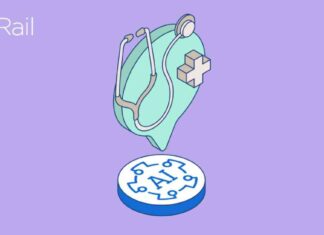Crawl Budget Optimization: A Comprehensive Guide for Effective SEO
Crawl budget optimization is a crucial aspect of SEO, especially for large websites with millions of pages or medium-sized websites with frequently changing content. Websites like eBay.com, with millions of pages, or user reviews and ratings websites like Gamespot.com, with tens of thousands of pages that update regularly, need to pay close attention to their crawl budget.
While there are numerous tasks and issues that SEO experts need to consider, crawling is often overlooked. However, optimizing crawl budget can significantly impact a website’s search engine rankings and overall visibility.
In this article, we will delve into the importance of improving your crawl budget and explore the changes in crawl budget optimization over the years. Whether you have a large website with millions of pages or a smaller site with a few thousand pages, optimizing your crawl budget is essential for maximizing your SEO efforts.
What is Crawl Budget?
Crawl budget refers to the number of pages that search engine crawlers, such as spiders and bots, visit within a specific timeframe. It involves finding a balance between Googlebot’s attempts to not overload your server and Google’s desire to crawl your domain efficiently.
Crawl budget optimization entails taking steps to increase the efficiency and frequency at which search engine bots visit your pages. Without effective crawl budget optimization, new pages and updates may not be added to search engine indexes, affecting your website’s visibility and search rankings.
Why is Crawl Budget Optimization Important?
Crawling is the first step to appearing in search results. Without proper crawling, new pages and updates will not be indexed by search engines, delaying their appearance in search results. By optimizing your crawl budget, you can ensure that your optimization efforts take hold quicker and start impacting your rankings sooner.
With Google’s index growing daily and the increasing number of websites, search engines aim to reduce computational and storage costs by limiting the crawl rate and indexation of URLs. Additionally, there is a growing focus on reducing carbon emissions for climate change, prompting Google to improve sustainability and reduce its carbon footprint.
For large websites with millions of pages, managing resources and optimizing crawl budget is crucial to ensure that Google crawls your website efficiently with minimal resource utilization.
Tips for Optimizing Crawl Budget
1. Disallow Crawling of Action URLs in Robots.txt
Google has confirmed that disallowing URLs does not affect your crawl budget, meaning Google will continue to crawl your website at the same rate. By disallowing unimportant URLs, you can direct Google to crawl essential parts of your website more efficiently.
For example, blocking internal search query parameters and facet filters in e-commerce sites can prevent Google from wasting crawl budget on non-essential pages. Use robots.txt rules to block URLs with specific query parameters that do not provide unique content, improving crawl efficiency.
2. Disallow Unimportant Resource URLs in Robots.txt
In addition to action URLs, consider disallowing JavaScript files or REST API endpoints that are not essential for rendering your website. By blocking irrelevant resources in robots.txt, you can guide Google to focus on crawling critical pages and improve overall crawlability.
3. Watch Out for Redirect Chains
Avoid long redirect chains or infinite loops in your website’s URLs, as they can cause crawlers to abandon the chain before reaching the final destination. Use SEO tools to identify and fix redirect chains, ensuring efficient crawling and indexing of your pages.
4. Use Server-Side Rendering (HTML) Whenever Possible
Opt for server-side rendering over client-side rendering with JavaScript to reduce computational costs for search engine crawlers. By delivering content in HTML format, you can streamline the crawling process and improve crawl efficiency.
5. Improve Page Speed
Optimize your website’s page speed to facilitate quicker crawling and indexing by search engines. Faster server response times can enable Google to crawl more pages on your site, enhancing your website’s visibility in search results.
6. Take Care of Your Internal Links
Ensure that internal URLs on your website point to the canonical version, whether with or without ‘www’ or trailing slashes. Fix broken internal links and avoid unnecessary redirects to prevent crawl budget wastage and improve user experience.
7. Update Your Sitemap
Maintain an updated XML sitemap that includes only canonical URLs and corresponds to the latest version of your robots.txt file. A well-structured sitemap can help search engine bots navigate your website more efficiently and index your pages accurately.
8. Implement 304 Status Code
Utilize the 304 Not Modified status code to inform search engines when a webpage has not changed since the last crawl. By returning this status code, you can save server resources and help Googlebot prioritize crawling updated content on your site.
9. Hreflang Tags Are Vital
Include hreflang tags in your website’s header to indicate localized versions of your pages to search engines. By using hreflang tags correctly, you can improve the analysis of localized pages and enhance your international SEO efforts.
Monitoring and Maintenance
Regularly monitor your server logs and Google Search Console’s Crawl Stats report to identify crawl anomalies and address potential issues promptly. Combining server log data with Search Console insights can help you detect crawl spikes or indexing problems and take corrective actions.
In Conclusion
Optimizing your crawl budget is a critical aspect of SEO that can significantly impact your website’s search engine visibility and rankings. By following the tips outlined in this article and staying proactive in managing your crawl budget, you can improve your SEO performance and enhance your website’s overall crawlability.
Remember that crawl budget optimization is an ongoing process that requires continuous monitoring and adjustments to ensure your website’s optimal performance in search engine results. By implementing these best practices and staying informed about the latest SEO trends, you can position your website for success in the competitive online landscape.























